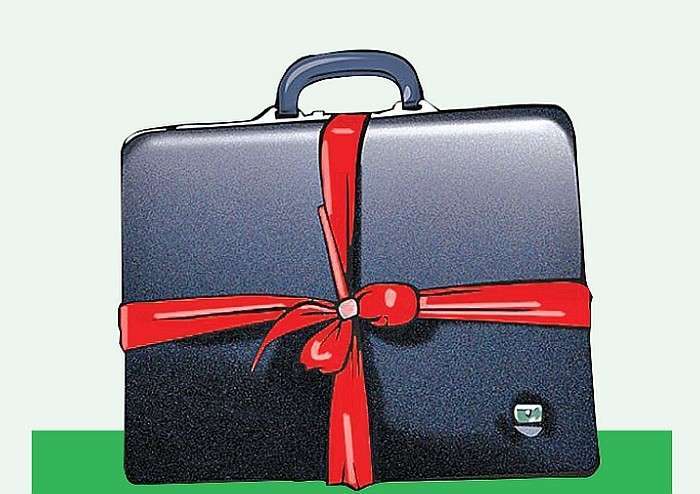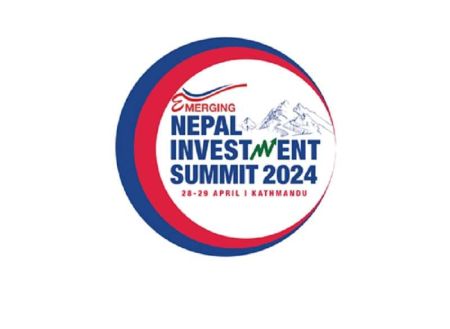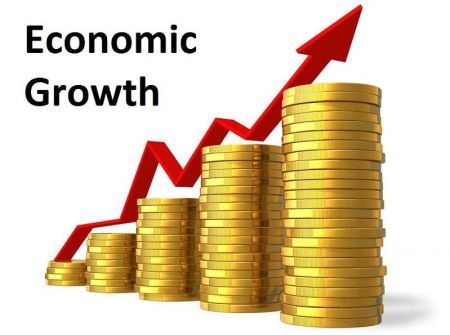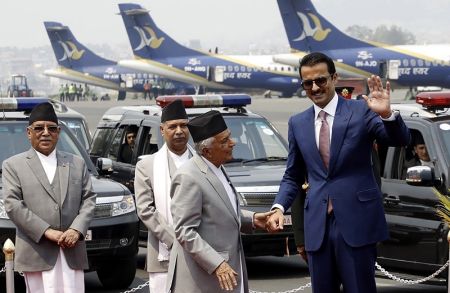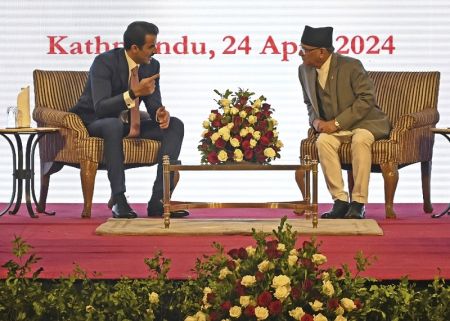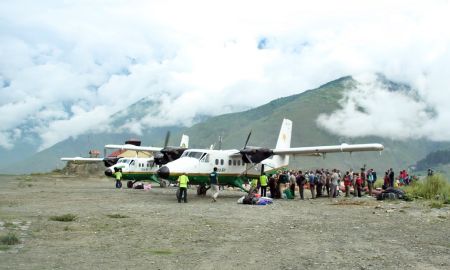May 30: The budget unveiled by the government on May 29 has drawn mixed reaction from various stakeholders. While some have hailed the government for introducing investment friendly budget and prioritizing vaccination drive against Covid-19, others have criticized the government for introducing a full-fledged budget through ordinance at a time when the parliament is dissolved.
Burden of loans on future generation
Dr Ramsharan Mahat,
Former Finance Minister
Overall the government has brought budget going beyond its jurisdiction. The caretaker government is not allowed to introduce a full budget program. The budget should also be a temporary one. But the government has introduced budget going against the spirit of constitution. Apart from that, the budget is populist in nature. It is very challenging to implement provisions introduced in the budget.
On top of that, the size of the budget at this time of crisis is too large. One third of the budget financing will be arranged through foreign loans. This will add burden of loans on future generation. I don't have objection on government's priority sector but overall the budget is not satisfactory.
Budget has been introduced to cater to the present needs
Dilliraj Khanal
Former member of the National Planning commission
The budget has been introduced proritizing the present COVID-19 crisis which is very commendable. Along with that, relief packages, tax waiver, increment on social security allowance has been introduced. The program of social security has been highly prioritized.
The budget has followed the same discourse as that of the world and has been criticised as a populist one. The aim of inoculating the people with COVID-19 vaccine is not a populist step but the need of the hour. However, it remains to be seen if the programme can be made effective and accountable.
Budget for upcoming fiscal year is way better than we had expected it to be
Shekhar Golchha,
FNCCI president
We are yet to do a detailed study of the budget presented for the upcoming fiscal year. I think the budget is friendly towards private sector as well as investment-friendly.
Demands that we were raising for long have now been finally addressed. The budget program is way better than we had expected it to be. Tax rates applied on various businesses have gone down. The government has provided VAT rebate on diesel and increased the facilities introduced through monetary policy in the last fiscal year.
The new issue of billing charges is the most encouraging one. If this is implemented, any power producer can directly sell it to the industry. This will bring a huge change in the industrial sector. All in all,the budget is private sector and investment-friendly.
Budget implementation is difficult
Rajendra Malla
President, Nepal Chamber of Commerce
While the budget of Rs 1,647.57 billion has been announced, the goal is to collect Rs 1024 billion from internal revenue. The goal seems to be very difficult to achieve. It could have been done under normal circumstances, but we are in a chaotic situation due to this pandemic. The goal is challenging in itself. Industries and businesses are in a state of collapse at present. Thus, the implementation of the budget is difficult. Nevertheless, suggestions from the private sector are included in the budget. DPR study of metro rail, temple construction and other issues are also included in the budget this year. It would not have made any difference even if it was included after one or two years. Attention should have been paid to the current priorities. Despite this, the overall budget is still positive. However, due to the current pandemic and political crisis, the implementation process is complicated and we are concerned about this.
Implementation should be done in collaboration with private sector
Satish Kumar Moore
President, Confederation of Nepalese Industries
Although some people were saying that the full budget should not be brought in such a situation, we were demanding that a full budget should be brought for policy making. Now, the full budget has been introduced where suggestions from the private sector have been addressed. The issue of billing charges has been raised. The budget is brought in a way that promotes infrastructure development, vaccine management and startup industry. We have found that the budget supports our important campaign of Make in Nepal. But its implementation is very challenging. So, we will also take initiative to create an environment of implementation in collaboration with the private sector.
Best budget in history
Krishna Dulal
President, NADA
The budget of the Fiscal Year 2078/79 has announced full exemption of excise duty on the import of electric vehicles. Similarly, renewal fee will be waived for five years if petroleum-powered vehicles are converted into electric vehicles, diesel-powered light vehicles will be replaced with electric vehicles by 2088, electric vehicles will be operated and assembled and production will be initiated, customs exemption will be given. It has been announced to give 90 percent income tax exemption to traders having transactions of up to Rs 2 million and 50 percent income tax exemption to traders having transactions of up to Rs 10 million. Similarly, that tax payment certificates will be automatically provided after submitting tax details, while the government has announced to build 500 charging stations, provide income tax exemption and loan to startup business for 5 years. So, overall the budget is encouraging. We consider it the best budget in history.
The goal of achieving a economic growth of up to 6.5 percent is challenging
Bhuvan Kumar Dahal
President, Nepal Bankers Association
The budget for the upcoming fiscal year is encouraging. But implementation is needed. It is necessary to submit the progress report by implementing the programmes addressed by the budget. At the moment, the goal of economic growth of up to 6.5 percent without controlling the pandemic is challenging. This is possible only after the Covid-19 pandemic is controlled, otherwise, it seems difficult. The goal can be achieved by bringing vaccines.
The programmes related to banks and financial institutions introduced in the budget are commendable. Digital banking is encouraged for the banking business. It was necessary. The budget for infrastructure is well allocated. But looking at the past, there is a lack of coordination in development expenditure because such spending seems to be slow. It is important to implement the budget and address it in time.
The issue of the extension was not enough
Ravi Singh
Chairman, Federation of Contractors Association of Nepal
We have taken the budget positively. However, the provision regarding extension of projects is not sufficient. The tax rebates so far are also good. The amount allocated for hospitals is not enough. However, the projects should be planned to be fully paid within the project period while allocating the budget, but this preparation is still not seen. The budget seems to be focused on the election. Since it was brought to please everyone, there is no reliable basis on its implementation part.
Addresses the demands of tourism entrepreneurs
Binayak Shah
Vice President, Hotel Association of Nepal
The budget has announced a separate relief for tourism and is positive. We had anticipated emergency plans in tourism. It has come sporadically. However, many things have been addressed as demanded by the entrepreneurs. Decisions such as not charging one month’s visa fee to foreigners and giving 10 days of tourism leave to promote domestic tourism are positive aspects. It is better to consider the hotel and tourism industry as a productive sector. Even though the budget is good, it remains to be seen how it will be implemented. It is also important to have supervision over whether it has been implemented or not.
There is no reason to be excited
Ganesh Prasad Lath
Representative, FNCCI
The budget has tried to satisfy everyone. Still, there are no grounds to be excited over it. It sounds good to hear about vaccinations and ICU as well as ventilators in hospitals. The topic of health infrastructures was included in the budget of the current fiscal year as well. Oxygen plants in hospitals of hundred beds are something related to regulation, the government has no role in investment in this issue. There aren’t any special points in the budget that one can get excited about.
There are doubts in budget implementation
Rajendra Raut
Central Member, FNCCI
The size of the budget this year is larger in comparison to that of last year. The aim of revenue collection this year is greater as well. The success or failure of the budget would be decided by the implementation part. In the present crisis of pandemic, the allocation of 1 trillion budget for Covid-19 prevention is quite welcoming. Only 60 percent of the budget for infrastructure development was spent last year. Government has allocated budget in the projects that do not make complete use of the allocated budget. The implementation of this budget is doubtful.
The budget allocated to reduce trade deficit, to reduce consumption of petroleum products, to encourage production of electric vehicles are praiseworthy. It is a good thing to introduce the programme to give tax discounts on electrical equipment in order to increase the consumption of produced electricity. But it would have been better if there was a provision to grant tax discounts on manufactured electric vehicles. The budget is lacking in some manner in order to make the agriculture sector self-reliant.
The budget is worth welcoming
Bhim Ghimire
Province 1 President, Confederation of Nepalese Industries
The approach to allocate budget prioritizing the health sector is a positive indication. The budget has tried to be inclusive of young entrepreneurs and it is a very good thing. I am very pleased as our demand of making the 650 bighas of land in Amduwa of Sunsari into an economic zone has been addressed which we have been demanding time and again. Similarly, we have also been demanding a state-level industrial exhibition for Province 1.
The government's plan to shift industries of Kathmandu to Hetauda and the services provided for that matter are pretty exciting. To discourage import, antidumping would be implemented. The project by the government to encourage export of cement, slippers and shoes are praiseworthy.


